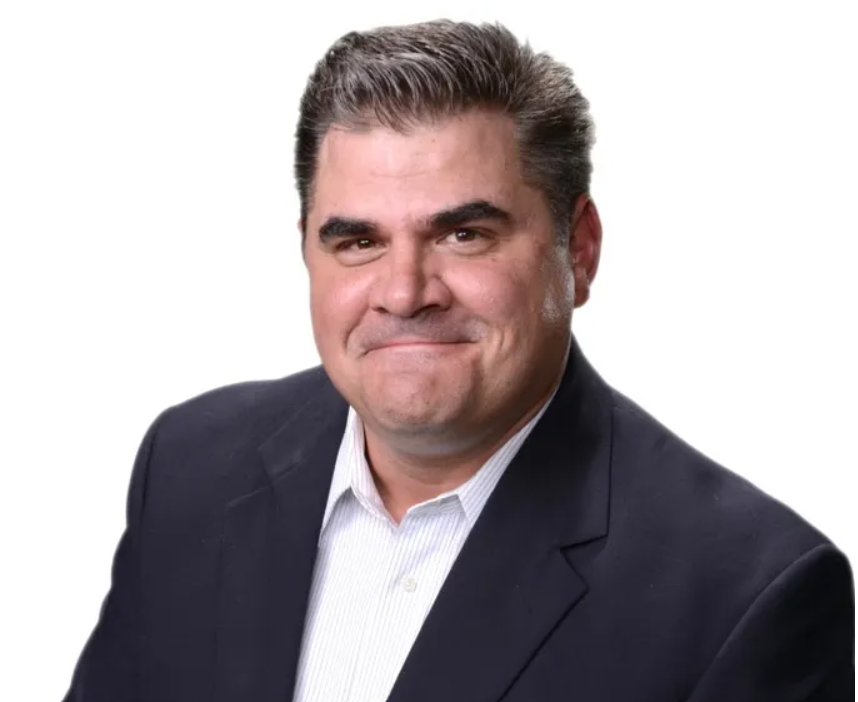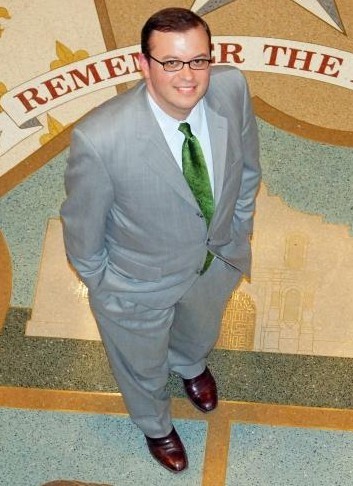By Jay Leeson
Editor’s note: My friend Jay Leeson passed away this week surrounded by friends and family in Lubbock, a city he loved so well. In the time I knew him, Jay became a strong voice for West Texas on the radio, TV, and in print. He was only 44. But a person doesn’t need to live a long time to leave a lasting legacy. Back in 2015, he approached me about writing something to put the challenges of the region in perspective for those who live in rural Texas and those who represent it in the halls of power. The result was this article, “A Politics of Place.” As we head into another special session, this time focused on diverting resources from public schools for private school vouchers, Jay’s words could never be more important. He said “the more you vote against your place the less you have to come home to.”
Rest in peace, my friend. Your thoughts and words live on – SB
A place carries a continuity of knowledge and passes it from generation to generation. How it works, what makes it turn.
When there’s disruption in this continuity, learning transpires by trial-and-error – costly lessons of what a place will and will not tolerate.
Such learning risks decline. Perhaps ruin.
In my late teens and early twenties, I rambled around a region built on agriculture, education and health care with a well-worn copy of Milton Friedman’s Capitalism and Freedomin my truck console, an authentic 1964 Goldwater-Miller bumper sticker and anti-government talk shows blaring on the AM radio.
That was the late 1990s and early 2000s. A disruptive political period in the region, in which West Texan social conservatism finally divorced the Democratic Party and native fiscal frugality married Republicanism – a party that, outside of Reconstruction and Larry Combest’s coordination with Charlie Stenholm in the 2002 Farm Bill, had made little contribution to the region.
The incongruence of my developing political identity to my surrounding economic realities never even occurred to me.
Then I grew up.
Driving around West Texas, one plainly sees a century’s worth of good government.
On long stretches of state highways, expansive landscapes of crops, ranchlands and oil fields are proof of America’s historical commitment to policy that incentivized domestic food, fiber and fuel production as a matter of national defense that can be immediately applied by several military bases. There are innumerous communities throughout the region in which school districts are the lifeblood as well as primary employers and those communities are within an hour’s access to healthcare.
Drive on into the rural metropolis of Lubbock and economic times have never been better.
Seven of the top 10 non-agriculture employers are public entities. Of the three remaining, one is a private hospital, another is a home healthcare provider and the other is a grocery store chain. The ‘recession-proof’ city’s unemployment is 3.5-percent.
The top 10 employers maintain 20-percent of 123,000-member workforce. The non-taxable invoices of small businesses providing quality work to these sectors and/or sector employees are both significant and unquantifiable.
Texas Tech University claims an annual $1.3 billion economic impact on Lubbock, a city located in a 100-mile radius of a $3 to 5 billion annual cotton industry.
Business experience in Lubbock, like the region, remediates whatever one failed to learn growing up in a place surrounded by the cotton, education and medical sectors. In such a place, demagoguery of government is as ironic as Al Gore boarding his private jet to keynote a carbon footprint conference.
One becomes aware of their political dissonance in talking awfully red when the deposits are quite blue.
And yet, anti-government rhetoric resonates. Often paid for by out-of-region groups, tempting genetic West Texan fiscal frugality and deeply rooted social convictions in order to exploit economic interests.
Within the bounds of Tom DeLay’s re-districting maps, rural Texas gets redder and redder. Debates about good government have dried up and voter participation recedes.
Campaigns fixate on social values issues. We staunchly oppose abortion and support the Second Amendment. But given the decline in our districts, it’s becoming clear that campaigns based on social values assume that a society exists in which to hold such values.
To borrow an adage, the more you vote against your place the less you have to come home to.
Drive out of Lubbock in any direction, look closely, and one sees what seems to be a fight against rural euthanasia.
Westward up and down the Caprock/New Mexico border, arsenic and fluoride levels in depleted water wells necessitate a $1-2 million reverse osmosis systems, revenue bonded by 500 meters or less. Southward to Interstate 20, school funding restraints have invented teacher recruitment from foreign countries. To the north and east, rural hospitals scrape by, or simply close, due to reduced Medicaid reimbursement rates eliminating margins.
A hard, disruptive decade has revealed the region’s toughest drought has been 40 years without rural development policy.
Folks who produce the nation’s food, fuel and fiber see their debt-to-asset ratios surging and their place creeping past decline—with very few political solutions in sight.
DeLay’s lines muzzled conservative Democrats, and Mr. Sam Rayburn’s Democratic party has taken up a newfound obsession with urban cultural liberalism and pink jogging shoes.
When the Democratic Party does involve itself in rural life, far too often it comes bearing burden from the Department of Labor aiming for big business, but hitting small business; Department of Labor saving chickens at the cost of the ranch; or the Environmental Protection Agency protecting with interpretive power grabs on water.
But the Republican Party’s leadership has increasingly become a two-step led with two right feet. One foot moving to the beat of Austin/Potomac ‘conservative’ interest groups, the other to the national party. And constituents are jerked around the rural dance floor.
Cue the 2014 Farm Bill.
While rural representation was fighting for Wall Street, Brazilians were fighting American cotton at the World Trade Organization. When a farm bill had to be crafted to address forfeited Brazilian victories, representative knees buckled to the cajoling of Heritage Foundation PAC and Cato Institute which said the bill was corporate welfare and farmers aren’t hurting, that duct-taped risk management strategies go far beyond giving farmers a safety net.
America’s archconservatives once fought for “simple justice” of price parity for farmers, fending for them against economic forces too big to fight alone. Presently, archconservatives are proving to be amongst the farmer’s most formidable economic foes.
If the greatness of a civilization is derived from its soil, the 2014 Farm Bill signals that no economic sector is safe. Especially education, energy or medical.
At the state level, interest groups actively dis-empowers rural schools, pushing vouchers dressed-up as tax credits or school choice. West Texas understands that “school choice” is a synonym for “voucher” and voucher is a euphemism for school consolidation.
Simultaneously, groups like the Texas Public Policy Foundation cite incentives and subsidies to actively fight wind energy development. Development that arrives at a critical economic juncture in the lives of many communities—yet present representation votes against these communities..
When the interests of external groups drive the policy of our place, we’re practicing a politics against place.
Gut-fighting political craftsmen once led tough West Texans. Guided by a politics of place, putting place over partisanship to work for good government.
Like U.S. Representative George Mahon, House Appropriations chair, who, when the President Lyndon Johnson called for a supplemental appropriation for Vietnam, granted the supplemental—on condition that infrastructure is built (Interstate 27) for West Texan producers to export the fruits of their labor to Interstate 40.
Like State Senator John Montford brokering deals in Austin for Lubbock’s Marsha Sharp Freeway, around which private enterprise thrives.
Like Governor Preston Smith leveraging the Texas’ Public University Fund (from which still Texas Tech receives $0.00) to initiate conversations about state funding for a law school and/or a medical school.
They were West Texicrats.
Political craftsmen who didn’t need or want to use God as a means to a political end. Mahons voting with the party 60-percent of the time within a given congress. Stenholms voting for Reagan tax cuts, balanced budgets and Clinton’s impeachment. They worked both sides of the aisle, Interstate 35 and the Mason-Dixie Line. And from this historical legacy of native conviction came the continuity of former Texas House Speaker Pete Laney imploring “members, vote your district” each time his gavel struck the dais.
Political careers now based upon party purity and obstruction may be personally ‘rewarding,’ but they’re sure proving expensive to the region.
What’s needed today are West Texicans.
At a time when the farmer farms the farm and the insurance lobby farms the farmer. When borrow-and-spend fiscal policy passes as conservative, when our frugality is tempted towards consolidation of our schools. When free markets are demanded of us, but not of China, India or Brazil. When we’re caught in the middle of much larger forces yielding both low supply and low demand.
Leadership that is willing to speak up for wind energy, for poor disabled rural children with jeopardized access to healthcare, for roads worn out by the Texas Miracle, for hospitals recouping costs of treating Medicaid clients—leadership willing to be called a ‘librul’ or RINO for their place.
A politics of place understands good government. That our place wasn’t conducive to straight-line Big Government policy when the state was deep blue; neither is it conducive to straight-line Big Business ideology now that it’s bright red.
As Mahon exhorted “Democrats first, New Dealers second” in an era of unprecedented government growth, so we should say “West Texans first, party-affiliation second” in today’s government inefficacy.
Rural Texan Bob Bullock (Texas Tech, Class of 1955) knew something of continuity of knowledge and politics of place—perhaps something of prophecy—when he said, “If we don’t know where we’ve been, we sure don’t know where we’re goin’.”
A return to a politics of place can make the region work again, make it turn again. It can make West Texas great again.


